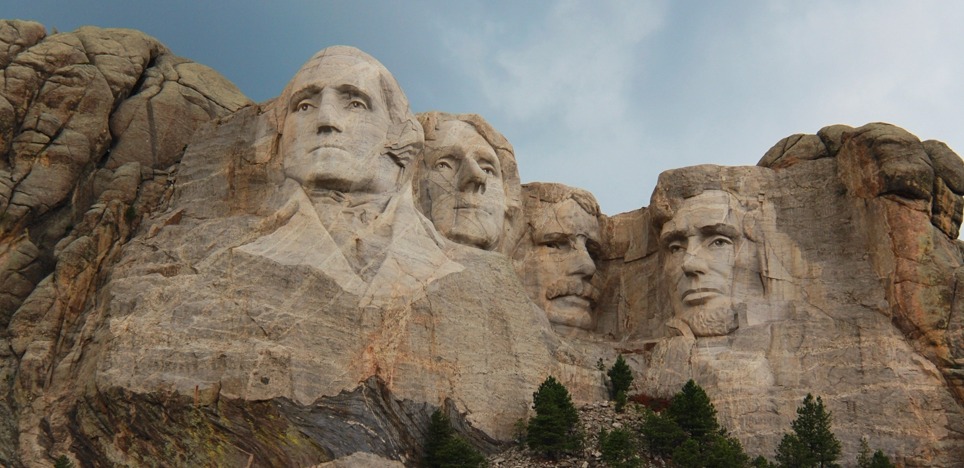Presidents’ Day is an American holiday that was originally celebrated on February 22 to coincide with the birthday of George Washington, the nation's first president. It falls close to the birthday of another popular president, Abraham Lincoln, on February 12. In 1971 the Uniform Monday Holiday Act, designed to give workers more three-day weekends, led to the Presidents' Day being officially set as the third Monday in February.
To Name This Day . . .
This is a good day to reflect upon the meaning of the presidency. Just what is a president for? It is not an easy job, as this quote from twentieth century American writer John Steinbeck suggests:
"The president must be greater than anyone else but not be better than anyone else. We subject him and his family to close scrutiny and denounce them for things that we ourselves do every day. A presidential slip of the tongue, a slight error in judgment — social, political or ethical — can raise a storm of protest. We give the president more work than a man can do, more responsibility than a man should take, more pressure than a man can bear. We abuse him often and rarely praise him. And with all this, Americans have a love for the president that goes beyond loyalty or party nationality; he is ours, and we exercise the right to destroy him."
Most politicians, historians, and commentators would agree with Steinbeck's observations on the U.S. presidency — as would most of the men who have held the office. Each to various degrees has felt the pressure of close critical assessment of his every action coupled with the public's fan-like fascination with his every move.
Today's president has many duties and roles. Some were clearly defined in the Constitution. Others have evolved over the years along with the power of the executive branch of the government. The media age, with its omnipresent cameras, carefully staged photo opportunities, press conferences and sound bites, all watched over by an army of reporters and commentators, has further enlarged the scope of attention on the presidency. Some would venture that Americans know more than they need to know — and even want to know — about the president's behavior in both his public and private lives.
The presidency is no longer just a matter of doing the duties set out in the Constitution. Now anyone holding the office must also deal with the public's expectations — both good and ill. This is why assessing your own attitudes toward what is needed in a president is important to do regularly — or at least annually on Presidents' Day! Here are two exercises for your assessment.
Presidential Assets
Rank the following personality traits according to how important you think they are in a President with 1 being most important and 10 being least important:
_____ honest
_____ pragmatic
_____ competent
_____ compassionate
_____ industrious
_____ moral
_____ flexible
_____ prudent
_____ innovative
_____ consistent
What other personality traits would you add to this list?
Leadership Qualities
Rank the following additional qualities of a good leader, with 1 being most important and 15 being least important.
_____ intelligence
_____ vision
_____ integrity
_____ imagination
_____ courage
_____ charisma
_____ enthusiasm
_____ fairness
_____ sound judgment
_____ good listening skills
_____ management talent
_____ organizational skill
_____ ability to empower others
_____ desire for innovation
_____ respect for tradition
What other leaderships qualities would you add to this list?
For Fun:
Presidents are considered to be national and international leaders. But you may not think the president deserves those titles. If extraterrestrials landed on Earth and asked to be taken to your leader, who would you introduce them to?
